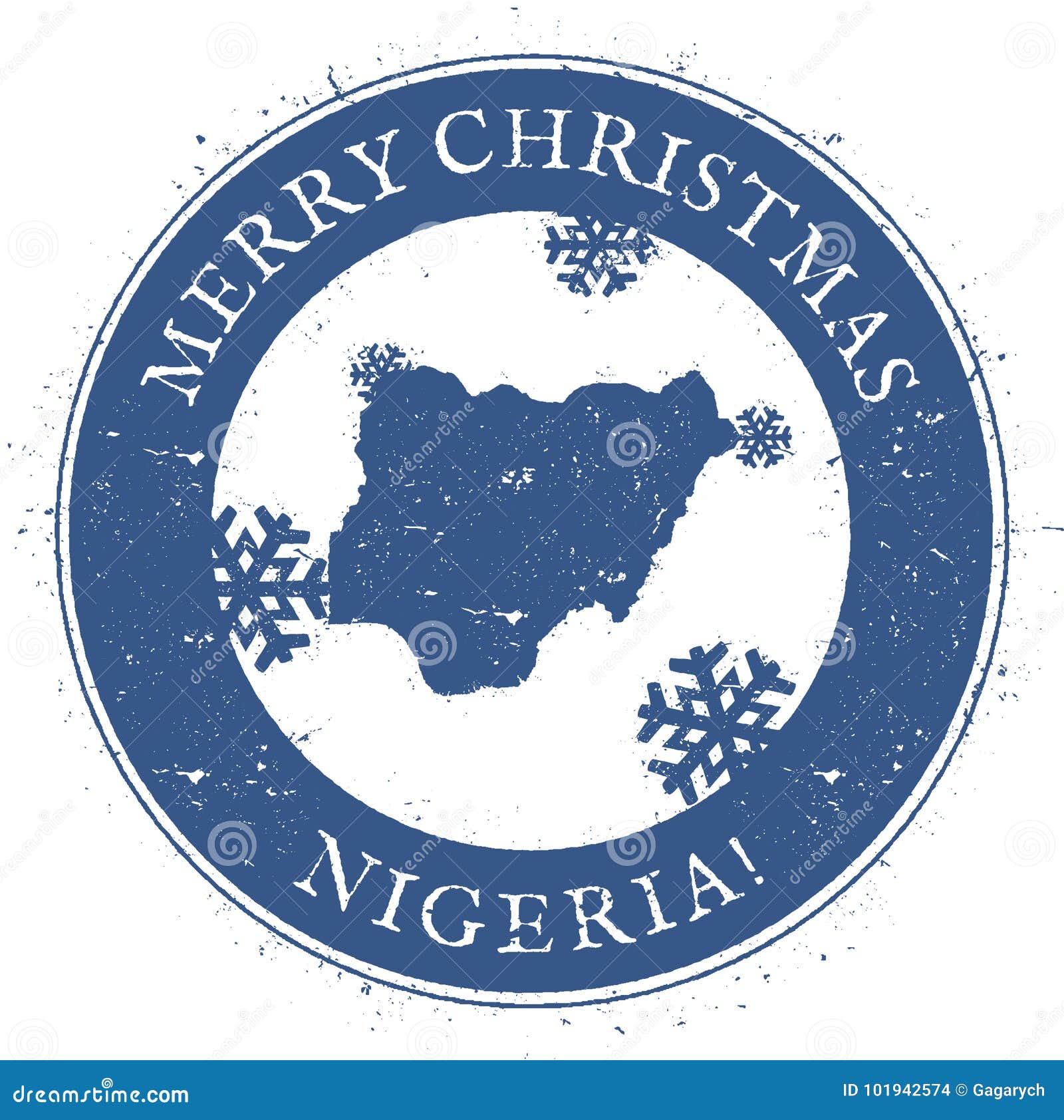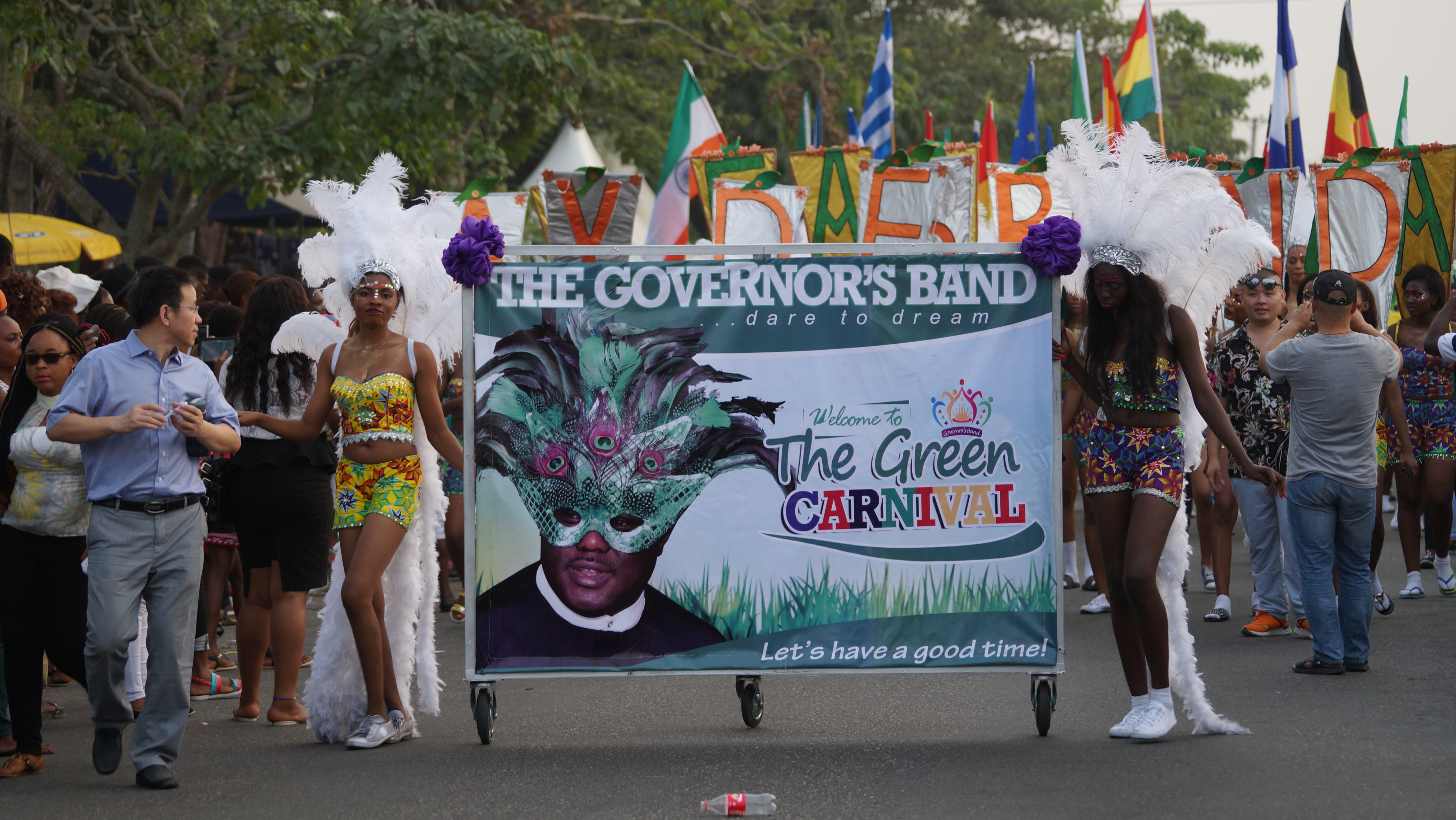Christmas in Nigeria is a vibrant celebration that reflects the country's rich cultural diversity and deep-rooted traditions. From the bustling streets of Lagos to the serene villages in the north, the festive season is a time of joy, unity, and togetherness. Nigerians embrace Christmas with unparalleled enthusiasm, blending Christian customs with local traditions to create a unique holiday experience. Whether it's the melodious carols echoing through churches, the aroma of traditional meals wafting through homes, or the dazzling decorations lighting up neighborhoods, Christmas in Nigeria is a spectacle that captivates locals and visitors alike.
As one of the most anticipated holidays in the country, Christmas in Nigeria is more than just a religious observance. It is a cultural phenomenon that brings families and communities together. People travel from far and wide to reunite with loved ones, share meals, exchange gifts, and participate in various festivities. The holiday season is marked by an infectious spirit of generosity, as people open their hearts and homes to spread cheer and goodwill. This celebration is not only a reflection of Nigeria's Christian heritage but also a testament to the warmth and hospitality of its people.
What makes Christmas in Nigeria truly special is how it seamlessly blends modern influences with age-old customs. While Western traditions like Santa Claus and Christmas trees have found their way into Nigerian homes, the essence of the celebration remains deeply rooted in local culture. From traditional dances and music to elaborate feasts featuring indigenous dishes, the holiday season is a vibrant tapestry of colors, sounds, and flavors. For anyone looking to experience the true magic of Christmas, Nigeria offers a celebration like no other.
Read also:Blake Lively Fat Unveiling The Truth Behind The Headlines
- What Makes Christmas in Nigeria Unique?
- How Do Nigerians Celebrate Christmas?
- What Are the Traditional Foods of Christmas in Nigeria?
- Who Are Some Famous Nigerians Associated with Christmas?
- Why Is Christmas a Time for Family Reunions in Nigeria?
- How Does Nigeria Decorate for Christmas?
- What Role Do Religious Services Play in Christmas in Nigeria?
- Can Tourists Experience Christmas in Nigeria?
- What Are the Best Places to Celebrate Christmas in Nigeria?
- How Has Christmas in Nigeria Evolved Over the Years?
What Makes Christmas in Nigeria Unique?
Christmas in Nigeria stands out for its vibrant fusion of cultural and religious practices. Unlike many Western countries where the holiday is often commercialized, Nigeria's celebration retains a strong emphasis on community, faith, and family. The country's diverse ethnic groups each contribute their unique traditions, creating a rich tapestry of customs that make Christmas in Nigeria truly special. From the Igbo tradition of "Mmanwu" masquerade performances to the Hausa practice of "Sallah" celebrations, the holiday season is a melting pot of cultural expressions.
Another defining feature of Christmas in Nigeria is the emphasis on giving and sharing. It's common for people to distribute food, clothing, and other essentials to the less fortunate during this season. This spirit of generosity is deeply ingrained in Nigerian culture and is a reflection of the country's communal values. Additionally, the use of local materials for decorations and the preparation of traditional meals highlight the resourcefulness and creativity of Nigerians during the festive period.
How Do Nigerians Celebrate Christmas?
Nigerians celebrate Christmas with a mix of religious observances and cultural festivities. One of the highlights of the season is attending church services, which often begin on Christmas Eve and continue into Christmas Day. These services are marked by lively hymns, prayers, and sermons that emphasize the significance of the birth of Jesus Christ. Many churches also organize special programs, including nativity plays and choir performances, to mark the occasion.
After the religious services, families gather to share meals and exchange gifts. Traditional dishes like jollof rice, pounded yam, and assorted meats take center stage during these gatherings. In some communities, people also engage in traditional dances and music, adding to the festive atmosphere. The streets come alive with parades, parties, and events that continue well into the New Year, making Christmas in Nigeria a prolonged celebration of life and joy.
What Are the Traditional Foods of Christmas in Nigeria?
Food plays a central role in the celebration of Christmas in Nigeria, with families preparing elaborate feasts that showcase the country's culinary diversity. One of the most popular dishes is jollof rice, a flavorful one-pot meal made with rice, tomatoes, and spices. Another staple is pounded yam, often served with rich soups like egusi or ogbono. These dishes are typically accompanied by an assortment of meats, including chicken, beef, and goat.
Snacks and desserts also feature prominently during the holiday season. Chin chin, a deep-fried pastry made from flour, sugar, and spices, is a favorite treat among Nigerians. Other popular snacks include meat pies, puff puff, and moin moin. Beverages like zobo (a drink made from hibiscus flowers) and kunu (a millet-based drink) are often served to complement the festive meals. The abundance of food during Christmas in Nigeria is a testament to the country's love for hospitality and celebration.
Read also:Corbin Bleu A Multifaceted Talent Who Continues To Shine
Who Are Some Famous Nigerians Associated with Christmas?
While Christmas in Nigeria is a collective celebration, some individuals have played significant roles in shaping how the holiday is observed. One such figure is Fela Kuti, the legendary musician whose songs often captured the spirit of Nigerian culture and traditions. Although not specifically tied to Christmas, Kuti's influence on Nigerian music has inspired many holiday performances and celebrations.
Here is a brief overview of Fela Kuti's personal details:
| Full Name | Olufela Olusegun Oludotun Ransome-Kuti |
|---|---|
| Date of Birth | October 15, 1938 |
| Place of Birth | Abeokuta, Nigeria |
| Profession | Musician, Activist |
| Notable Contribution | Pioneer of Afrobeat music |
How Did Fela Kuti Influence Christmas in Nigeria?
Although Fela Kuti is not directly associated with Christmas in Nigeria, his music has become a staple during holiday celebrations. Many Nigerians incorporate his songs into their festivities, using them as a backdrop for parties and gatherings. Kuti's emphasis on cultural pride and unity resonates deeply with the values celebrated during Christmas in Nigeria.
Why Is Christmas a Time for Family Reunions in Nigeria?
Christmas in Nigeria is synonymous with family reunions, as it is one of the few times in the year when people make a conscious effort to connect with loved ones. The holiday season provides an opportunity for Nigerians living abroad to return home and spend time with their families. This tradition of coming together strengthens familial bonds and reinforces the importance of community in Nigerian culture.
During this time, families engage in various activities, from cooking and eating together to attending church services and participating in community events. The sense of togetherness and belonging that permeates Christmas in Nigeria is a testament to the country's strong family values. For many Nigerians, the holiday season is incomplete without the presence of family members, making reunions a cherished aspect of the celebration.
How Do Nigerians Prepare for Family Gatherings During Christmas?
Preparations for family gatherings during Christmas in Nigeria often begin weeks in advance. Homes are cleaned and decorated, and meals are planned meticulously to ensure that everyone enjoys the festivities. It's common for families to assign roles to different members, with some responsible for cooking, others for organizing games, and others for ensuring that guests feel welcome.
How Does Nigeria Decorate for Christmas?
Decorations are an integral part of Christmas in Nigeria, with homes, streets, and public spaces adorned with lights, ornaments, and other festive embellishments. While Christmas trees are a common sight, many Nigerians also incorporate local elements into their decorations. For instance, palm fronds and other natural materials are often used to create unique and eco-friendly displays.
In urban areas, shopping malls and markets are transformed into winter wonderlands, complete with artificial snow, Santa Claus figures, and themed installations. These decorations not only enhance the festive atmosphere but also attract tourists and shoppers, contributing to the economic vibrancy of the season.
What Are Some Unique Decoration Ideas for Christmas in Nigeria?
Some unique decoration ideas for Christmas in Nigeria include using Ankara fabric to create tree skirts and ornaments, incorporating traditional masks and sculptures into displays, and using locally sourced flowers and plants to add a touch of authenticity to the decor.
What Role Do Religious Services Play in Christmas in Nigeria?
Religious services are at the heart of Christmas in Nigeria, with churches playing a central role in the celebration. These services provide an opportunity for Nigerians to reflect on the spiritual significance of the holiday and express gratitude for the blessings of the past year. The sermons, hymns, and prayers during these services often emphasize themes of love, peace, and unity.
Many churches also organize outreach programs during the Christmas season, distributing food, clothing, and other necessities to those in need. These initiatives highlight the importance of compassion and generosity, values that are deeply ingrained in Nigerian culture.
Why Are Midnight Masses Popular During Christmas in Nigeria?
Midnight masses are a popular tradition during Christmas in Nigeria, as they allow worshippers to celebrate the birth of Jesus Christ at the stroke of midnight. These services are often followed by feasts and festivities, making them a highlight of the holiday season.
Can Tourists Experience Christmas in Nigeria?
Yes, tourists are more than welcome to experience the magic of Christmas in Nigeria. The country's hospitality and vibrant celebrations make it an ideal destination for those looking to immerse themselves in a unique holiday experience. From attending church services to participating in local festivities, tourists can enjoy a firsthand look at how Nigerians celebrate this special time of year.
Some popular activities for tourists during Christmas in Nigeria include visiting Christmas markets, attending cultural performances, and exploring the country's diverse landscapes. Whether you're exploring the bustling streets of Lagos or the serene beaches of Calabar, there's something for everyone to enjoy during the holiday season.
What Are the Best Tips for Tourists Visiting Nigeria During Christmas?
For tourists planning to visit Nigeria during Christmas, here are a few tips to enhance your experience:
- Book accommodations and flights well in advance, as the holiday season is a peak travel period.
- Respect local customs and traditions, especially during religious services and family gatherings.
- Try local dishes and beverages to fully immerse yourself in the festive spirit.
- Carry cash, as some rural areas may not have access to ATMs or card payment facilities.
What Are the Best Places to Celebrate Christmas in Nigeria?
Nigeria offers a variety of destinations where tourists can experience the magic of Christmas in Nigeria. Lagos, the country's largest city, is known for its lively Christmas markets and dazzling light displays. The city's nightlife also comes alive during the holiday season, with numerous parties and events taking place throughout December.
For a more traditional experience, visitors can head to the southeastern part of the country, where Igbo communities celebrate with colorful masquerade performances and cultural festivals. The northern region, with its rich Hausa and Fulani heritage, offers a unique perspective on Christmas, with celebrations that blend Islamic and Christian traditions

